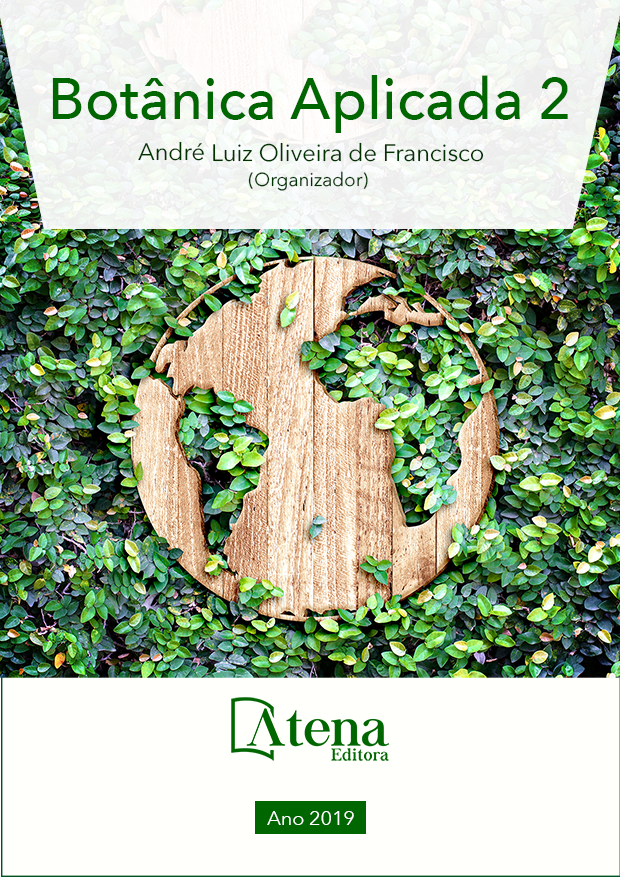
JOGO DIDÁTICO INCLUSIVO: ENSINO DE BOTÂNICA PARA DISCENTES OUVINTES, SURDOS E COM DEFICIÊNCIA AUDITIVA
Botânica é uma área das Ciências
alvo de reclamação pelos discentes. A aversão
pode ser devido à escassez de material
didático para auxiliar os docentes e estimular
discentes. Por isso, acredita-se que o uso de
jogos didáticos no ensino de Botânica deva
ser um poderoso recurso pedagógico. O
objetivo dessa pesquisa consistiu na aplicação
e avaliação do jogo dominó vegetal em uma
turma do 7º ano do ensino fundamental de
uma escola pública do Distrito Federal. Em
um primeiro momento, foi lecionada uma aula
expositiva, com o uso de amostras de plantas,
para apresentar aos discentes os grupos
vegetais e suas respectivas características.
Posteriormente, foi aplicado um questionário
pré-jogo. Depois, os discentes brincaram com
o jogo didático que abordou o mesmo tema
da aula expositiva. Por fim, foi aplicado um
questionário pós-jogo. Para a comparação das
respostas pré e pós-jogo, utilizou-se Mann-
Whitney, com alfa de 5%, e comparação de
porcentagens. O entendimento acerca de todos
os grupos vegetais pelos discentes ouvintes e
surdos/deficientes auditivos foi maior após a
aplicação do jogo, sendo esse estatisticamente
superior para o público ouvinte. Tanto discentes
ouvintes quanto surdos/deficientes auditivos
gostaram bastante da metodologia adotada e
conseguiram interagir mais, o que demonstra
que o aprendizado lúdico é eficiente em termos
escolares assim como inclusivo e eficaz para o
desenvolvimento social. Conclui-se, então, que
o uso do jogo dominó vegetal teve fundamental
importância para a melhoria do processo
de ensino e aprendizagem, pois estimulou
a participação ativa de ambos os públicos
discentes.
JOGO DIDÁTICO INCLUSIVO: ENSINO DE BOTÂNICA PARA DISCENTES OUVINTES, SURDOS E COM DEFICIÊNCIA AUDITIVA
-
DOI: 10.22533/at.ed.55119220126
-
Palavras-chave: aula prática, estratégias de aprendizado, recurso didático.
-
Keywords: practical lesson, learning strategies, didactic resource.
-
Abstract:
Botany is an area of science
that is targeted of complaint by students. The
aversion may be due to the shortage of didactic
material to assist teachers and encourage
students. Therefore, it is believed that the use
of educational games is a powerful pedagogical
resource. The objective of this research
consisted of the application and evaluation of
the game vegetal domino in a class of the 7th
grade of a public school of Distrito Federal. At first, an expositive class was taught,
with the use of plant samples, to show to the students the vegetal groups and their
respective characteristics. Subsequently, a pre-game questionnaire was applied. Then,
the students played with the didactic game that approached the same theme of the
expositive class. Finally, a post-game questionnaire was applied. For comparison of pre
and post-game answers, Mann-Whitney was used, with alpha of 5%, and comparison
of percentages. The understanding of all the vegetable groups by the listening and deaf
students was greater after the application of the game, being this statistically superior for
the listening public. Both listening and deaf students enjoyed the methodology adopted
and managed to interact more, which demonstrates that playful learning is efficient in
terms of schooling as well as inclusive and effective for the social development. It is
concluded that the use of the game vegetal domino had fundamental importance for
the improvement of the process of teaching and learning, since it stimulated the active
participation of both publics students.
-
Número de páginas: 15
- KAMILA DA SILVA VASCONCELOS
- Marina Neves Delgado
- Silvia Dias da Costa Fernandes


